Abstract
Allozyme, morphological, and PCR-generated mtDNA markers were used to analyze hybrid parentage and introgression between the neighboringly sympatric crustaceans Daphnia galeata mendotae and Daphnia rosea. mtDNA analysis of D. galeata mendotae from 15 lakes and of D. rosea from 8 lakes revealed species-specific fragment patterns resulting from TaqI and RsaI digestion. No individuals of one parent species possessed the typical mtDNA of the other parent species, suggesting that mtDNA introgression is rare or nonexistent. Hybrids from 18 lakes possessed either the mtDNA patterns of D. rosea or of D. galeata mendotae, indicating that reciprocal hybridization occurs. The mtDNA genome of the dominant parent species in a lake was overrepresented in the hybrids, suggesting that hybridization most often involves females of the common species and males of the rare species. Such a pattern is consistent with the differing importance of density to the environmental induction of males and sexual eggs in Daphnia. For the assessment of nuclear gene flow, eight sympatric populations of each parental taxon and seven allopatric populations of D. galeata were analyzed for allozyme variation at nine polymorphic loci. Our results provided evidence for asymmetric interspecific gene flow involving alleles at six loci that are unlikely to be convergent or symplesiomorphic. This reticulate evolution accounted for much of the genetic divergence between European and North American populations of D. galeata.
Full text
PDF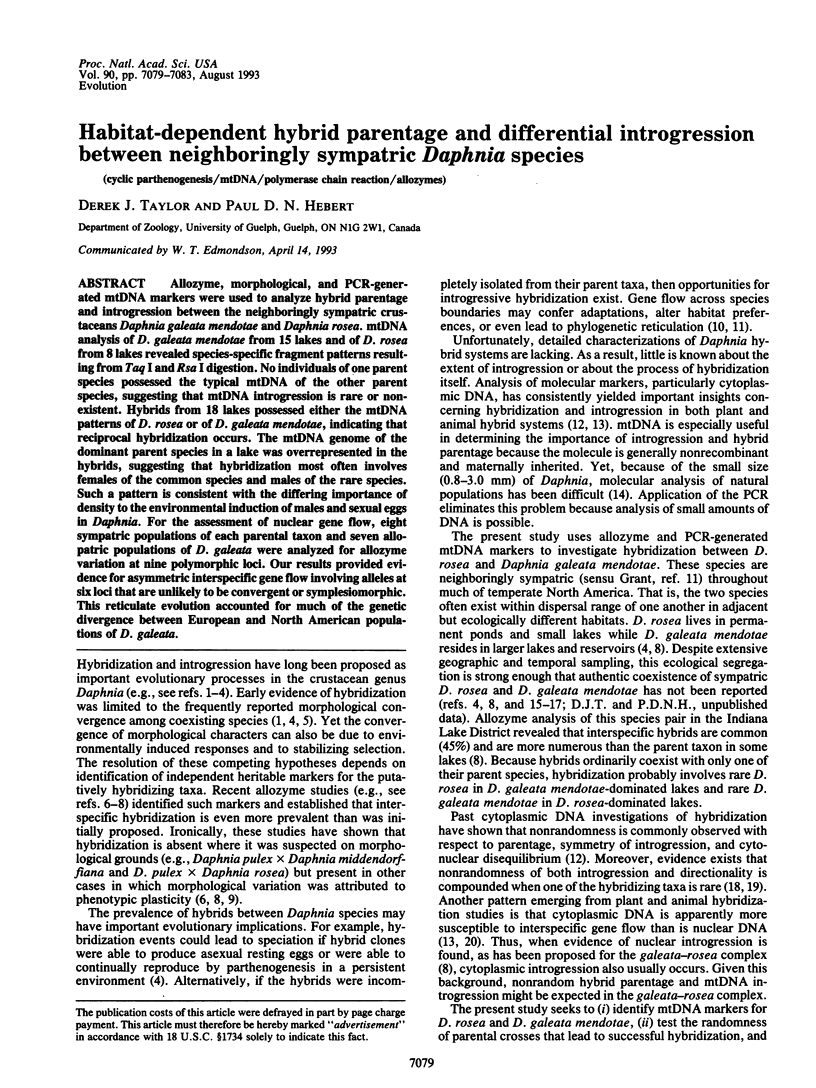
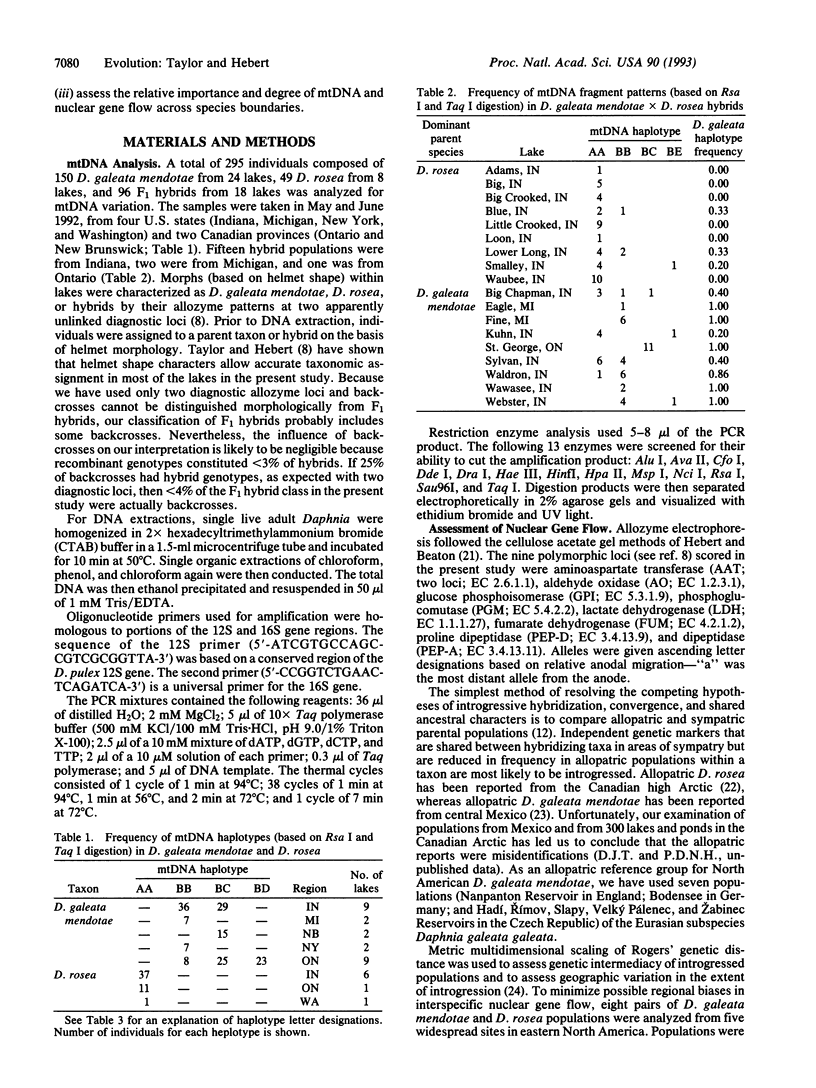
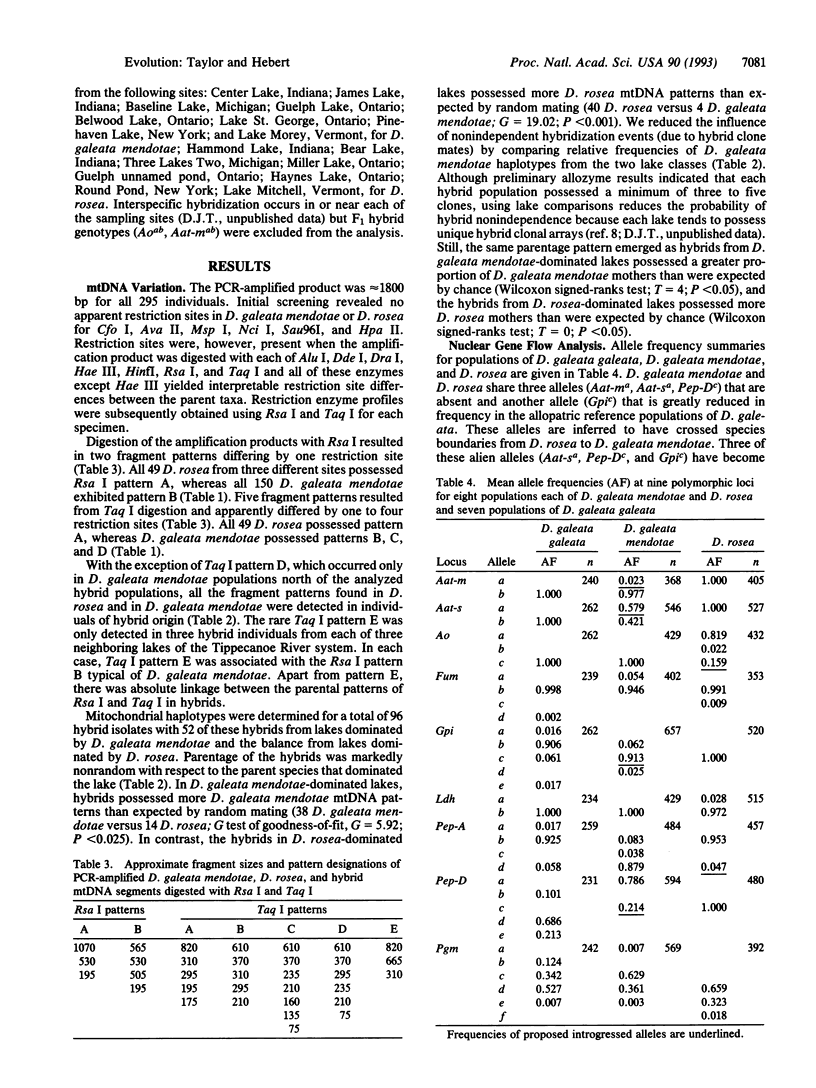
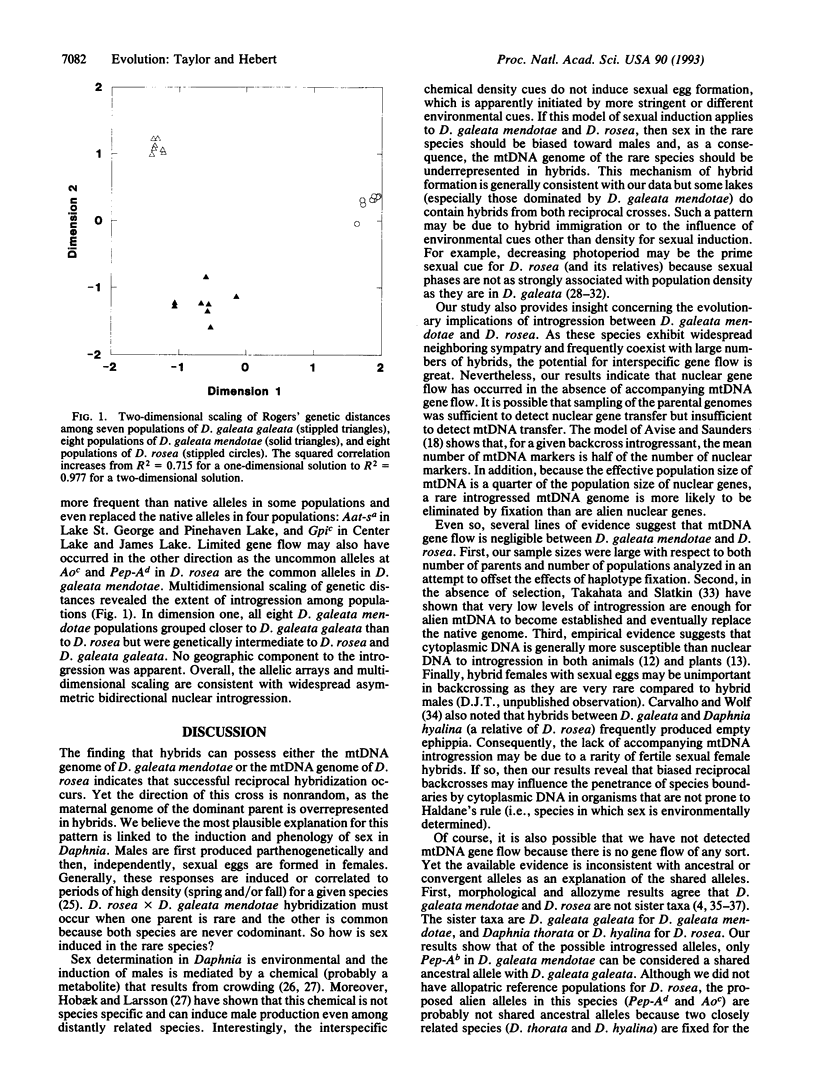
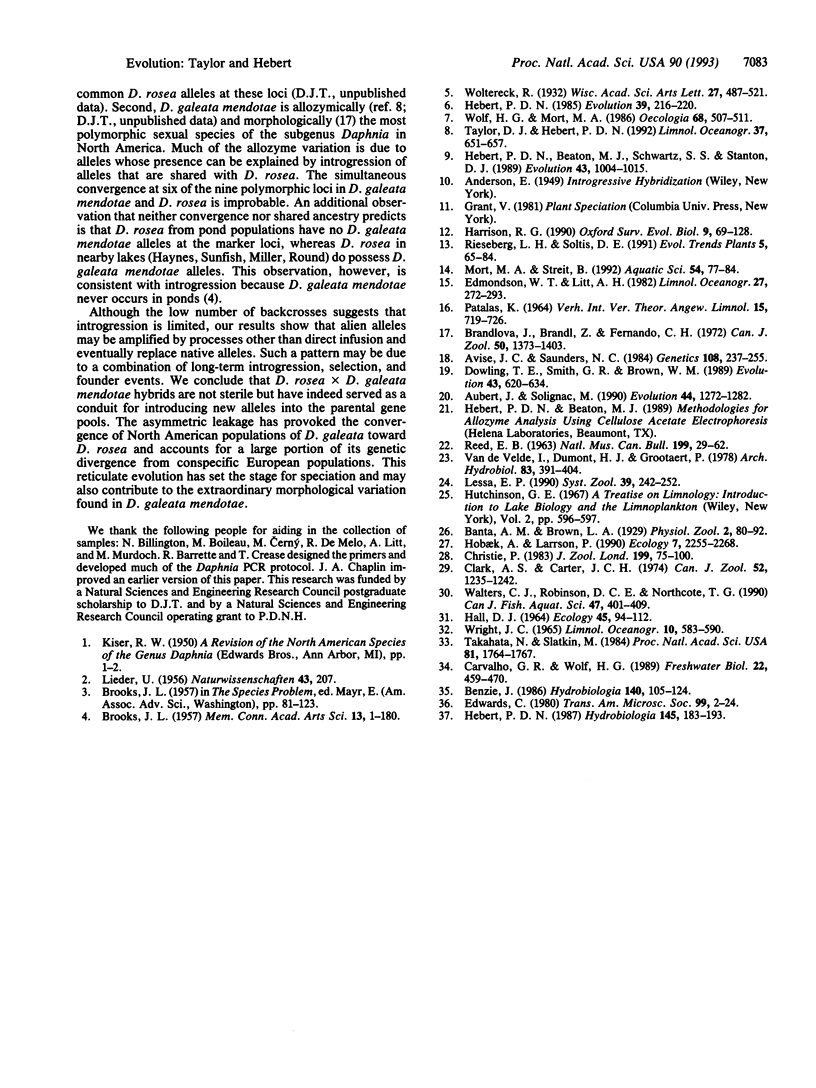
Images in this article
Selected References
These references are in PubMed. This may not be the complete list of references from this article.
- Avise J. C., Saunders N. C. Hybridization and introgression among species of sunfish (Lepomis): analysis by mitochondrial DNA and allozyme markers. Genetics. 1984 Sep;108(1):237–255. doi: 10.1093/genetics/108.1.237. [DOI] [PMC free article] [PubMed] [Google Scholar]
- Takahata N., Slatkin M. Mitochondrial gene flow. Proc Natl Acad Sci U S A. 1984 Mar;81(6):1764–1767. doi: 10.1073/pnas.81.6.1764. [DOI] [PMC free article] [PubMed] [Google Scholar]



